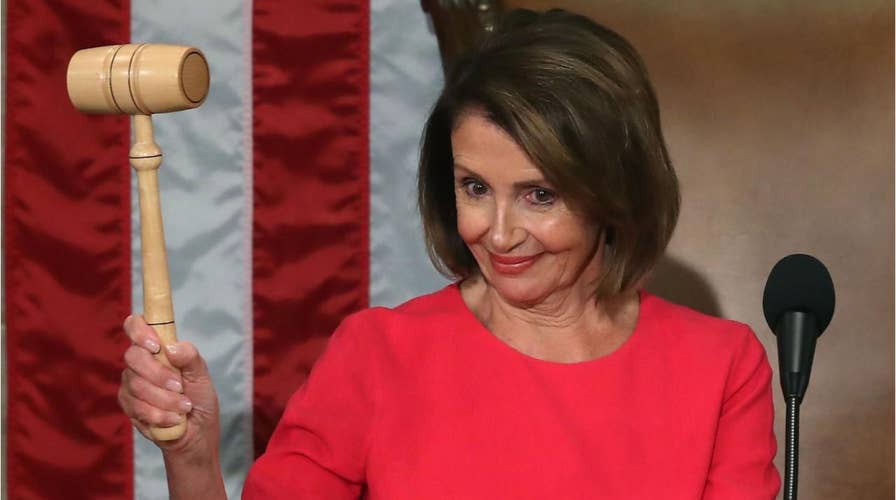15 Democrats defect on speaker vote and oppose Nancy Pelosi
California Rep. Nancy Pelosi was elected Speaker of The House. But who are the 15 Democrats who voted against her?
House Democrats are targeting President Trump’s tax returns as part of a broad ethics reform package that amounts to their first major piece of legislation since reclaiming the majority this week.
The package as a whole aims to address voting to make registration and polling access easier for citizens, in addition to tightening election security. But specifically, the legislation requires presidents to disclose at least 10 years of their tax returns to the public, in an apparent swipe at Trump.
The topic has been a contentious one for the president since his time on the campaign trail in 2016, and throughout his administration, as he refuses to release his financial information. Trump has claimed that his tax returns are complicated, and has maintained that he will not release them while they are under audit by the Internal Revenue Service.
“Requires sitting Presidents and Vice Presidents, as well as candidates for the Presidency and Vice-Presidency to release their tax returns,” the bill’s “Presidential Tax Transparency” section reads.
The reform package, H.R. 1, the “For the People Act,” also aims to “end the dominance of big money” and “reduce the role of money” in politics, by requiring political organizations to disclose their big-money contributors and donors, introduces a multiple-matching system for small political donations to “break special interests’,” and tightens rules of super PACs.
The bill also bans foreign contributions in campaigns and requires PACs and organizations to disclose the identities of their donors who contribute more than $10,000.
“We heard loud and clear the American people feel left out and want us to clean the culture of corruption, and they want it to be easy, not hard, to register to vote in America,” Democracy Reform Task Force Chairman Rep. John Sarbanes, D-Md., said at a press conference Friday.
The bill looks to expand access to the polls by creating automatic voter registration, ensuring that individuals who have completed felony sentences have their voting rights restored, expanding early voting and simplifying absentee voting. The bill also would require each state to make voter registration, correction, cancellation and designation of party affiliation available online.
With regard to “automatic voter registration,” the bill would require state election officials to automatically register eligible unregistered citizens to vote.
The bill would also restore protections included in the 1965 Voting Rights Act, and protect against efforts by state election officials to purge voting rolls. The bill also called for states to establish independent redistricting commissions to draw boundaries for future congressional districts, in an effort to minimize partisan gerrymandering.
“We made a promise to the American people, the new members that came made a promise, H.R.1 is delivering that promise,” Sarbanes said.
He added: “In return for you giving us the gavel, we’re going to do everything we can, every day, to give you democracy back.”
On ethics, members of Congress would be barred from serving on corporate boards and could not use taxpayer dollars to settle employment discrimination cases.
The Associated Press contributed to this report.











































